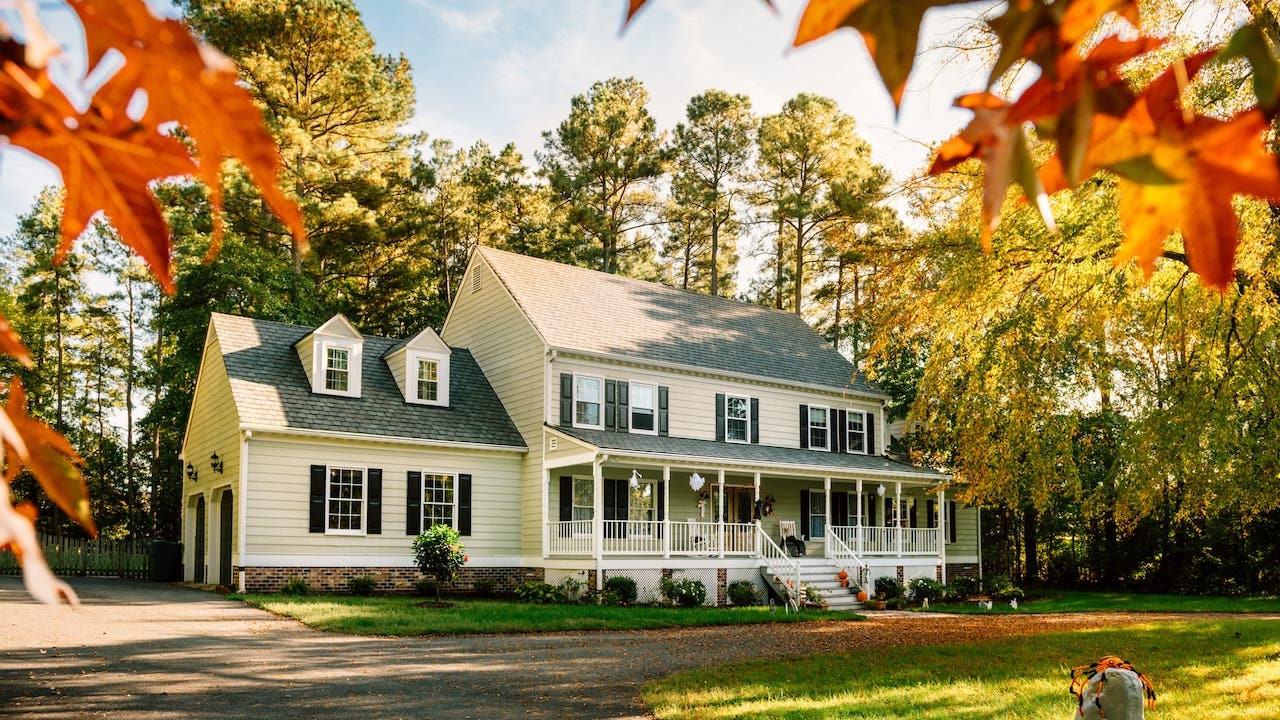How much house can I afford with a $170K salary?

If you are making $170,000 a year, you are significantly more well off than the average American — the national median household income is $74,580 per year, according to U.S. Census data. However, buying a house can be difficult for anyone. To know how much you can afford to spend on a house, it’s important to understand your comfort level as well as your finances. Just because you can spend a certain amount, doesn’t mean you should. Here are factors to consider as you calculate how much house you can afford on your $170K salary without stretching your budget too thin.
The 28/36 rule
The 28/36 rule is used by many mortgage lenders to determine the ideal price range a borrower should stay within. It states that you should spend no more than 28 percent of your monthly income on housing costs, and no more than 36 percent on your entire debt load (including housing costs plus any student loans, auto loans, credit card bills or any other debt you may have).
While this is more of a guideline than a hard-and-fast rule, it can be a helpful way to come up with a budget when you’re buying a house. Here’s how it works for your $170K salary:
- $170,000 / 12 = $14,166 per month
- $14,166 x 0.28 = $3,966 (your monthly housing cost limit)
- $14,166 x 0.36 = $5,099 (your total monthly debt limit)
Keep in mind that several other factors will play a part, too, including your location’s property tax and homeowners insurance rates. And these are ongoing monthly cost estimates — they do not include one-time upfront payments like your down payment and closing costs.
How much house can you afford?
Following the calculations above, your monthly housing costs should stay below $3,966. So, assuming a 30-year loan at 7.3 percent interest, with a traditional 20 percent down payment, that means you can likely afford a home of about $600,000. According to Bankrate’s mortgage calculator, this scenario will result in monthly principal and interest payments of $3,290, which gives you about $700 of leeway to account for variable fees like property taxes and home insurance premiums. Just be sure your other debt doesn’t take you beyond the 36 percent mark.
A budget of $600,000 should be enough for a spacious home in most any market in the country, especially since the median home sale price as of October 2023 was a much lower $391,800. Remember, though, that even at this relatively high price point, your money will go much farther in some areas than others. In costly markets such as New York City or the San Francisco Bay Area, $600,000 will buy considerably less. Consider your desired location’s overall cost of living, including daily expenses like groceries and transportation, as well as the home’s price tag.
Remember, too, that your salary is not the only thing a lender considers when you apply for a mortgage. These factors will also have an impact on how much house you can comfortably afford:
- Credit score: A higher credit score will secure you a lower interest rate, reducing the overall interest you’ll pay over the loan’s life. This can lead to substantial savings, so if your credit score is not quite on par with your high salary, it makes sense to spend some time building it up before you start house-hunting.
- DTI and LTV ratios: Similar to the 28/36 rule, your debt-to-income ratio gauges how your ongoing debt aligns with the amount of money you bring in as income. Keeping it below 36 is generally favorable, although certain lenders may permit a higher DTI. Loan-to-value ratios are a measure of your proposed loan amount versus the market value of the home you’re buying.
-
Down payment amount: A goal of a 20 percent down payment is common, but it’s not mandatory. For example, some conventional loans require as little as 3 percent down for qualified borrowers. However, a smaller initial payment means borrowing more, leading to larger monthly payments. A 20 percent down payment also means you don’t have to pay private mortgage insurance on top of the principal and interest payments, so if you can swing it, it makes financial sense. On a $600,000 purchase, 20 percent comes to $120,000.
Home financing options
While you may be a good saver, it’s unlikely that you have a spare $600,000 lying around to pay for your home purchase in cash. You will need to know your financing options for buying a house.
Mortgage preapproval
Getting preapproved for a mortgage is a great first step — it gives you an idea of how much a lender might be willing to loan you, so you can look for houses in the right price range. Once you’re ready to buy, you don’t have to stick with the same lender that preapproved you. Shop around for lenders that offer the lowest rates and best terms for your situation.
Different types of loans
There are many types of mortgages out there for borrowers to consider. Most have particular credit-score prerequisites, and your high salary might disqualify you from some. For military service members or veterans, VA loans can be a good choice, while FHA loans are often favored by first-time buyers and those with poor credit. However, with your $170,000 income, a conventional loan is likely the avenue you’ll be considering. An experienced loan officer or mortgage broker can help explain the options available to you.
First-time homebuyer programs
If this is your first time purchasing a home, you may want to look into first-time homebuyer programs in your area. If you qualify, these programs can provide down payment assistance, help with closing costs and other types of financial help to help mitigate the financial barriers and challenges associated with purchasing your first home. However, these programs may have maximum income caps, so your $170K salary may make you ineligible.
Next steps
Ready to begin your search for a house? Start by finding a local real estate agent. Agents are licensed experts, and one who knows your area well can help you find the best available options in your price range. Take the time to interview several candidates to make sure you find someone who is a good fit for you and your needs.
Why we ask for feedback Your feedback helps us improve our content and services. It takes less than a minute to complete.
Your responses are anonymous and will only be used for improving our website.






